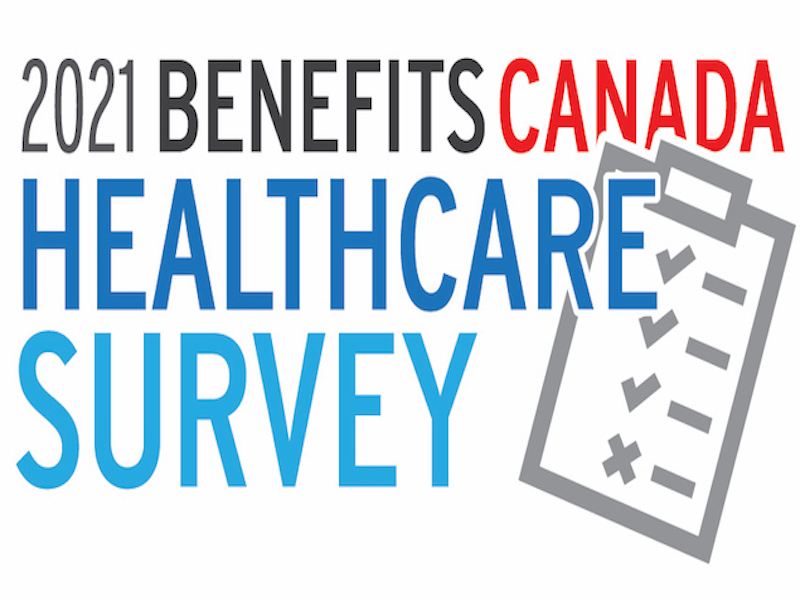

Canadian health benefits plan members’ top stressors have shifted to reflect the new work environments created by the coronavirus pandemic, according to the 2021 Benefits Canada Healthcare Survey.
The survey, formerly known as the Sanofi Canada Healthcare Survey, found that 35 per cent of plan members described their stress level at the beginning of 2021 as high or extremely high, up slightly from 2020 (30 per cent) and comparable to 2018 (33 per cent).
The main source of stress cited was personal finances (36 per cent), followed closely by workload (34 per cent), personal relationships (31 per cent), health concerns including the coronavirus (31 per cent) and work-life balance (30 per cent). The top two reasons — personal finances and workload — are unchanged from results gathered in January 2020 for last year’s survey. However, rankings have shifted in the areas of personal relationships, health-care concerns, work-life balance and interactions with people at work.
Read: Sanofi survey finds age a factor in levels of workplace stress
Fortunately, Canadian plan sponsors are stepping up their employee supports during the pandemic and their plan members are taking advantage. Among the 62 per cent that offer an employee assistance program to staff, 40 per cent reported an increase in use in the last year, while just seven per cent reported a decrease.
After the EAP, the highest net increases for use were for mental-health services (31 per cent), prescription drugs (31 per cent) and wellness or personal spending accounts (26 per cent). Only one benefit, dental services, saw a net negative result of two per cent, comprised of 22 per cent of plan sponsors that reported an increase and 24 per cent that reported a decrease.
The survey also found that nearly half (47 per cent) of plan sponsors reported lower than expected health benefits costs in the past year due to the impacts of the pandemic, while 13 per cent reported higher than expected benefits costs.
Among employers that experienced lower costs, 47 per cent said they took this as an opportunity to invest in other health benefits such as a virtual care program (19 per cent), an EAP (14 per cent) and/or in other ways (25 per cent). Plan sponsors that said the financial impact of the pandemic was positive were far more likely (68 per cent) to invest in other health benefits than those that were negatively impacted (34 per cent).
Read: Half of Canadians increasing use of virtual health care amid pandemic: survey
However, fewer than half (40 per cent) of plan sponsors reported that the pandemic has had a negative financial impact on their organizations. Almost the same percentage (41 per cent) said the impact was neutral and 18 per cent reported a positive financial impact.
In addition, almost half (46 per cent) of plan sponsors said the most recent renewal of their benefits plan was more difficult compared to before the pandemic, though the result didn’t differ significantly between administrative services only (48 per cent) and insured (46 per cent) plans. And 71 per cent of plan sponsor respondents said they’re concerned about the long-term impact of the pandemic on the cost of their health benefits plan, while 23 per cent were very concerned.
Similarly, 77 per cent of plan sponsors said the pandemic will have a large impact on costs for certain benefits over the next five years. This level of concern rose to 84 per cent among those that receive claims data analyses on their top disease states, compared to 57 per cent among those that don’t get this type of reporting.
Read: Survey finds cost of employer benefits in Canada set to rise 7% in 2022
Within this group, respondents felt the biggest impact would be in claims for mental-health issues among employees, excluding those who were sick with the coronavirus (64 per cent). This is followed by mental-health issues among employees’ dependants (47 per cent) and claims for serious diseases and chronic conditions that may have worsened due to delayed diagnoses or treatments (43 per cent). A quarter (25 per cent) said the biggest impact will be the various claims for those who had contracted the virus.
“We knew Canadians were struggling with their mental health before the pandemic and COVID-19 has amplified the crisis,” said Rachel McNeill-Thompson, an advisory board member and assistant vice-president of marketing, communications and client experience for group benefits at Sun Life, in the report. “Plan sponsors want to know what they need to do differently to address rising disability claims and create mentally healthy workplaces. This requires long-term commitment. The good news is there are resources available right now to develop strategies and offer solutions.”
Download the 2021 Benefits Canada Healthcare Survey report here.
